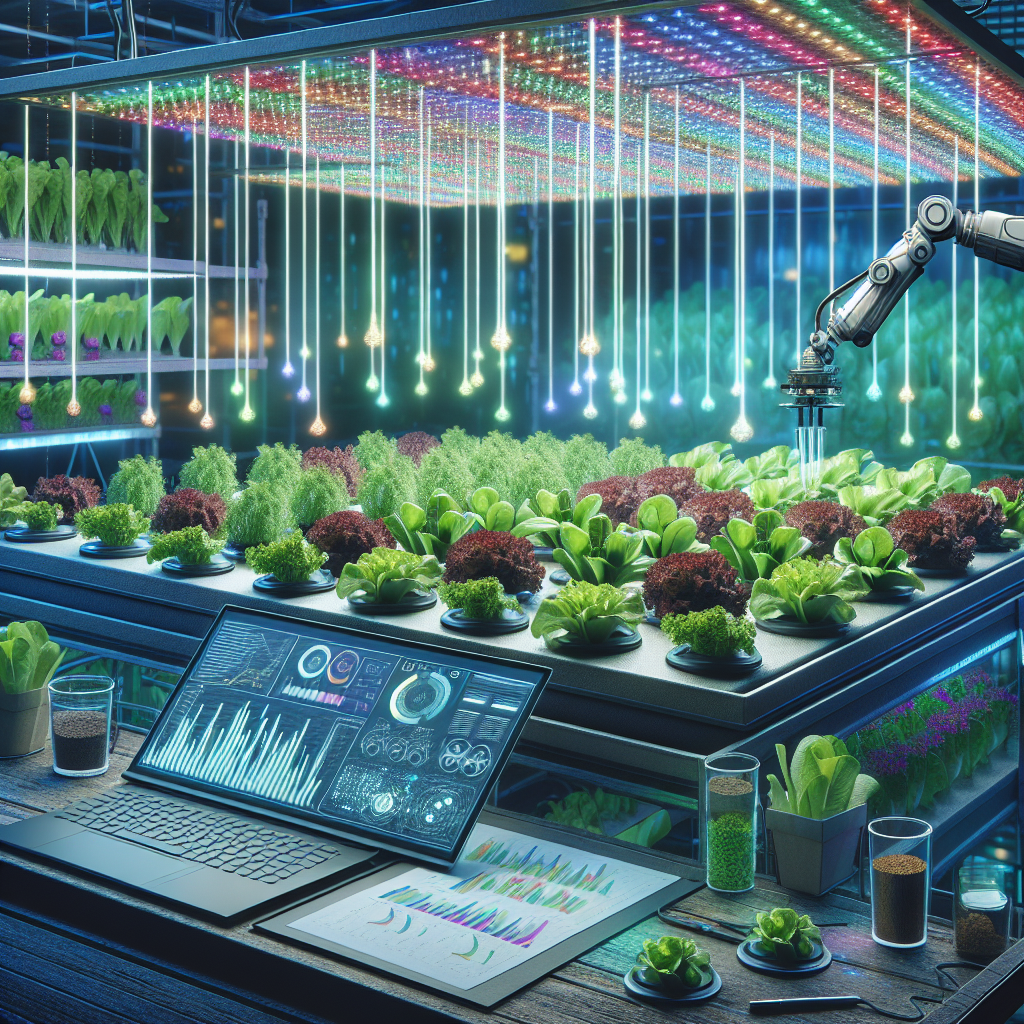Hydroponics is a method of growing plants without soil, using nutrient-rich water solutions instead. This innovative technique has been gaining popularity in recent years due to its numerous benefits, including increased crop yields, faster growth rates, and reduced water usage. With the help of artificial intelligence (AI), hydroponic systems can be further optimized to maximize efficiency and productivity.
AI technology allows for the collection and analysis of vast amounts of data, enabling growers to make informed decisions about the cultivation of their crops. By monitoring factors such as temperature, humidity, nutrient levels, and light intensity, AI can help to create the ideal growing conditions for plants. This can result in higher yields, better quality produce, and a more sustainable farming process.
One of the key advantages of AI in hydroponics is its ability to automate tasks that would otherwise be time-consuming and labor-intensive. For example, AI-powered sensors can continuously monitor plant health and growth, alerting growers to any issues that may arise. This can help to prevent crop failures and ensure that plants receive the care they need to thrive.
Another benefit of AI in hydroponics is its potential to optimize resource usage. By analyzing data on water and nutrient levels, AI can help growers to minimize waste and ensure that resources are used efficiently. This not only reduces costs but also contributes to a more sustainable farming model.
AI can also help to improve the overall quality of produce grown in hydroponic systems. By analyzing data on environmental conditions and plant health, AI can help growers to identify the optimal conditions for each crop. This can result in produce that is fresher, tastier, and more nutritious, making it more appealing to consumers.
In addition to these benefits, AI in hydroponics can also help to revolutionize the way that crops are bred and developed. By analyzing genetic data and plant traits, AI can help breeders to identify traits that are desirable in crops, such as disease resistance or increased yield. This can lead to the development of new, improved varieties of plants that are better suited to the hydroponic environment.
Overall, the potential of AI in hydroponics is vast. By harnessing the power of data and machine learning, growers can optimize their systems, increase yields, and produce higher-quality crops. As the technology continues to advance, we can expect to see even greater innovations in the field of hydroponics, leading to a more sustainable and efficient food production system.
FAQs:
Q: How does AI help to optimize resource usage in hydroponics?
A: AI can analyze data on water and nutrient levels to help growers minimize waste and ensure that resources are used efficiently.
Q: Can AI help to improve the quality of produce grown in hydroponic systems?
A: Yes, AI can analyze data on environmental conditions and plant health to help growers identify the optimal conditions for each crop, resulting in fresher, tastier, and more nutritious produce.
Q: How can AI help breeders develop new varieties of crops for hydroponic systems?
A: AI can analyze genetic data and plant traits to help breeders identify desirable traits in crops, leading to the development of new, improved varieties that are better suited to the hydroponic environment.

